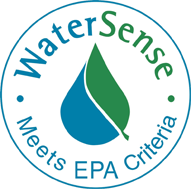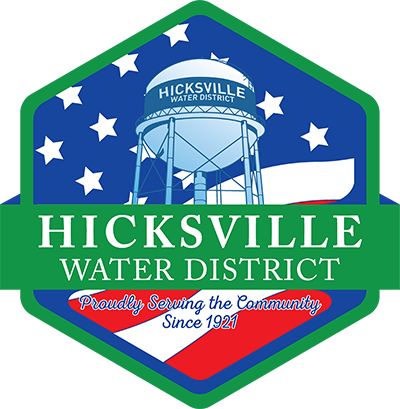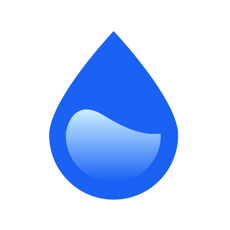Watersaving Tips

Listen to Mother Nature this Earth Day and plant the seeds for a beautiful, healthy landscape that requires less water and less maintenance.

Around The House
Why does water swirl when it goes down the drain?
Much like a figure skater spinning, water going down the drain has a circular effect. As the skater pulls his or her arms in close to the body, the skater spins faster. Likewise, because the drain opening is much smaller than the tub or basin, as the water nears it, the slight circulating motion gets faster so that you can see it.
Is it better to use hot or cold water when preparing a meal?
Cold water is best to use for cooking and drinking. Hot water is more likely to contain elements from your household plumbing and water heater since those particles generally dissolve into hot water more easily.
How long can I store drinking water?
Water from your tap can be stored for six months in capped, plastic containers that will not rust. Water that has been boiled for one to three minutes can be stored for up to one year in similar containers. If you choose to store your tap water in case of emergency, remember to replace the water every six months, as the disinfectants will slowly dissipate and your water will not be as safe to drink. And, never store it near toxic substances like bleach or other cleaning products that can actually pass through plastic.
How can I prevent the pollution of drinking water sources?
First, properly dispose of chemicals that are utilized in your home. Second, try to buy environmentally friendly household cleaners and products. Third, take advantage of the town-run Stop Throwing Out Pollutants program. Remember that anything you dump on the ground today can pollute the drinking water of future generations.
Should I buy bottled water?
NOTE: The US Food and Drug Administration (FDA) requires bottled water quality standards to be equal to those of the US Environmental Protection Agency for tap water, but the quality of the finished product is not government-monitored. Bottlers must test their source water and finished product once a year. Currently, any bottled water that contains contaminants in excess of the allowable level is considered mislabeled unless it has a statement of substandard quality.
Regulations require bottlers to inform consumers of “bottled water” contents. Although recent tests have not found any lead in dozens of brands of bottled water, studies have shown that microbes may grow in the bottles while on grocers’ shelves.
Can I make baby formula with my hot tap water?
Although cold tap water is safe for us to drink, hot water from your sink may not be safe, especially for babies. Your water heater may contain some very slight impurities, so use cold water from the tap instead. Heat up water in the microwave or over the stove and it will be perfectly safe for your baby formula.
Will putting a brick in my toilet tank really save water?
Putting an object in your toilet tank will help to conserve water, but a brick is not your best choice. Bricks can erode or crumble, so use a glass or plastic container filled with water instead. This way, every time you flush the toilet, a small amount of water will be safely conserved. However some toilets do require a certain number of gallons in their tank, so be sure to be careful and watch the water level to be sure you aren’t damaging the tank.
I want to kill the weeds on my lawn, but don’t want to endanger local wildlife that drink water on the ground. What should I do?
Weed killer isn’t only found in the gardening section. Household vinegar is an effective way to kill weeds and keep animals safe. Pour a small amount on the roots of the weed for an environment-friendly way to keep your yard beautiful.
I want a beautiful landscape that is water efficient. What should I plant?
There are many types of flowers and plants that can brighten up your landscape and survive on very little water. Beach Rose, Lavender, Black Eyed Susan, Mexican Sunflower, Narrow Leaf Zinnea and Butterfly Bush are all beautiful and durable plants that won’t require much watering. Ask your local nursery about ways to plant these flowers together and to learn more about their care. If you are looking for a larger addition to your yard, American holly, Conelian cherry, Eastern red cedar, hedge maple and pitch pine are trees that are considered “drought resistant.”
Is there a way that I can shut off my water in an emergency?
Yes. The main water shutoff is usually located where the water service enters the premises, typically near a boiler or hot water heater. Before an emergency arises, identify the valve and make sure it is clearly marked by tagging it or painting it with a bright color.
You also might want to check to make sure it works by turning it clockwise until the water shuts off to the house. Open the faucets in the kitchen or bathroom to make sure no water is flowing. If the valve is not functioning properly, have it replaced or repaired right away. Don’t forget to turn the water main back on when you are finished with the process.



